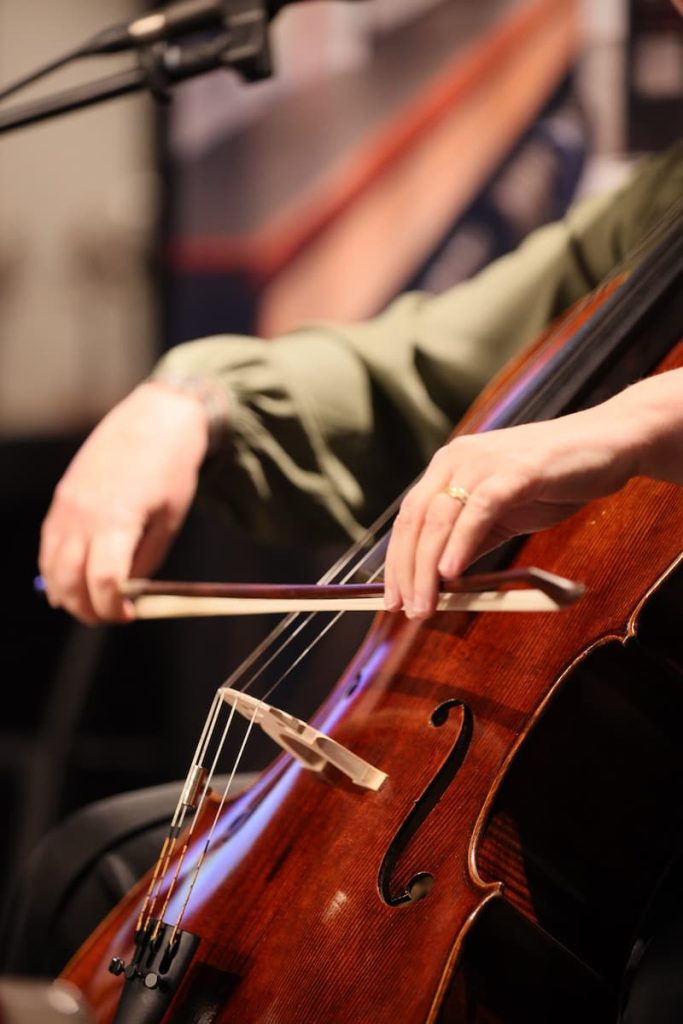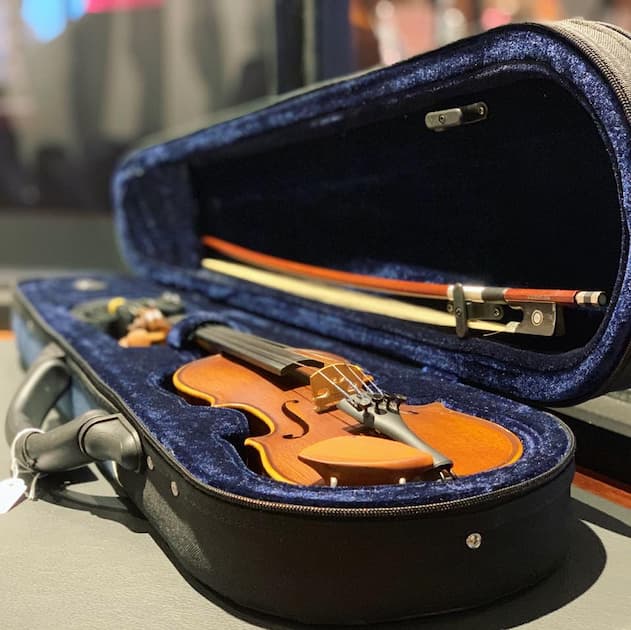5 Maintenance Tips for Prolonging Your Violin’s Lifespan
The violin is not just an instrument; it’s a delicate work of art that requires careful attention and maintenance to ensure its longevity and optimal performance. With quick and regular care, you can achieve many years of happy partnership between you and your instrument. So, let’s look at how you can care for and protect your violin and its performance.
String Care

The most important part of the entire instrument is the strings, therefore taking care of them is crucial for the sound. One essential component of string care is reliable and easy-to-apply resin for violin strings. Is rosin good for violin? It’s a vital component for all types of bowed string instruments, including the violin and cello. It’s basically hardened tree sap and without it, the bow hair cannot create enough friction to produce sound. It makes the bow hair stick to the string and pulls it which activates the string and it gives us the sound.
To properly prep your strings for playing, you need to apply rosin, and when it comes to the amount you should apply, make sure that you at least apply a few layers of rosin to your bow every time you practice. If you don’t apply the right amount, not only will you produce a very soft tone or no tone at all, but you might find patches on your bow.
If you use too much rosin, on the other hand, the sound produced will be sharp and scratchy, which can make it difficult to play. While there is no exact measurement for the amount of rosin to be applied, a good rule of thumb is to apply enough to create a thin layer on your bow hair. You should also make sure to clean your strings regularly with a soft cloth after every use, as excess rosin buildup can affect the sound quality.
There are varieties of shades and colours of rosin, but the two most typical are the light rosin for violin and the dark. The light type has a lighter tone and is used for higher-string instruments, while the dark rosin has a darker tone and is preferred for lower instruments such as the cello and upright bass. The type of rosin doesn’t affect the tone of the violin, but there will be an extremely subtle change that might not even be perceptible.
Storing Your Violin
Violins are quite sensitive to changes in temperature and humidity if they are stored in a place with high humidity and temperature the top and bottom plates will swell, changing the body’s thickness and making the sound post to collapse.
This means that you need to keep your instrument stored in environments where the temperature and humidity are as stable as possible. Note that the varnish on the violin shouldn’t be exposed to direct sunlight. When storing it be also careful of the curves that it has and don’t place it somewhere where it can be damaged. The best way to store your instrument is to store it in its case in a safe location.
Cleaning

Cleaning the instrument is crucial to maintain its structure and sound production. The first step in keeping it clean is to wash your hands before you play, that way your violin will stay nice and clean. After you’re done playing give it a quick wipe with a dry and clean cloth before putting it back in its case.
You should also clean your case when you start seeing flakes of dust, dirt and rosin because if the case isn’t clean the instrument won’t be either. If there’s a lot of dust and rosin buildup on your violin, get cleaning solutions that are meant for this type of cleaning so that you don’t damage the strings and the varnish and deep clean the entire instrument.
Proper Tuning
Proper tuning is essential for achieving the best sound quality. Tune your instrument regularly, before every practice session or performance, as changes in temperature and humidity can affect the strings and their tension. The tuning also depends on the weather and the amount of playing. If it’s a long performance you might need to retune the instrument frequently, and even though that may not be necessary, check regularly to see whether your violin is still.
Regular Inspection
To keep your instrument in optimal condition, regular inspections are vital. That way you can identify any issues with the violin before they escalate into more significant problems and you can address them in time. Inspect the instrument’s body, neck and strings for signs of damage such as cracks and loose fittings. Pay close attention to changes in sound quality and feel as these can indicate issues that require your attention.
Caring for your violin is an important task if you want to keep it in optimal condition and play the same instrument for years. Keep the strings always covered in rosin, store it properly away from any possible threat, clean it and inspect it regularly and you’ll have a violin that’s in peak condition and continues to delight audiences for many years to come.



